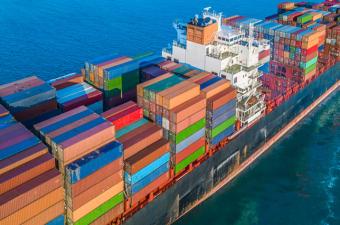
OVERVIEW
In The Elin, the court held that a clause in a bill of lading providing that certain cargo was “loaded on deck at shipper’s and/or consignee’s and/or receiver’s risk; the carrier and/or Owners and/or Vessel being not responsible for loss or damage howsoever arising” was effective to exclude a carrier’s liability for any loss of or damage to the deck cargo, including any loss or damage caused by the unseaworthiness of the vessel or the carrier’s negligence.
The cargo interests had argued that, by applying the guidance to the interpretation of exclusion clauses set out in R v Canada Steamship Line [1952] AC 192, the clause should be read as not excluding the carrier’s liability for loss or damage caused by the carrier’s negligence or the unseaworthiness of the vessel. That outcome had found favour in the Singapore Court of Appeal in Sunlight v Ever Lucky Shipping Company Ltd [2004] 2 Lloyd’s Rep. 174 and in the Canadian Court of Appeal in Belships v Canadian Forest Products Ltd (1999) A.M.C. 2606, in which similarly worded exclusion clauses were held not to exclude a carrier’s liability for unseaworthiness and negligence respectively.
The carrier argued that the words should be given their plain and natural meaning, and invited the court to follow the obiter decision of Langley J in The Imvros [1999] 1 Lloyd’s Rep 848, in which it had been held that a similarly worded deck cargo exclusion clause was effective to exclude losses caused by unseaworthiness.
Stephen Hofmeyr QC, sitting as a Judge of the High Court, dismissed numerous academic and judicial criticisms of Langley J’s decision in The Imvros, and held that as a matter of plain language and good commercial sense the carrier’s construction should be preferred. He declined to apply the approach espoused by the Privy Council in Canada Steamship Line mechanistically, which might have led to the exclusion clause being interpreted in the manner contended for by the cargo interests.
This decision resolves a conflict which had existed in the authorities as to the interpretation of deck cargo exclusion clauses. The English court declined to follow the approach adopted in the Singapore and Canadian Courts of Appeal, and instead confirmed that, as a matter of English law, a clause providing that a carrier will not be liable for loss or damage to deck cargo “howsoever arising” will be effective to exclude liability for the carrier’s negligence or its failure to exercise due diligence to make the vessel seaworthy. In order for the exclusion clause to operate, the cargo must be stated to be carried on deck and in fact carried on deck.
Max Davidson acted for the cargo interests, instructed by Philip Roose and Aneta Pillay of Roose & Partners.

